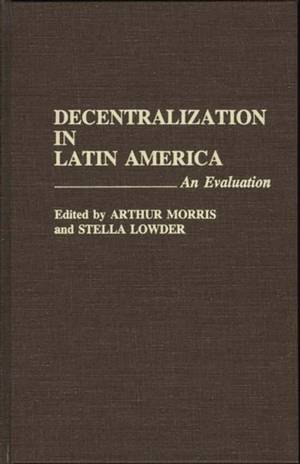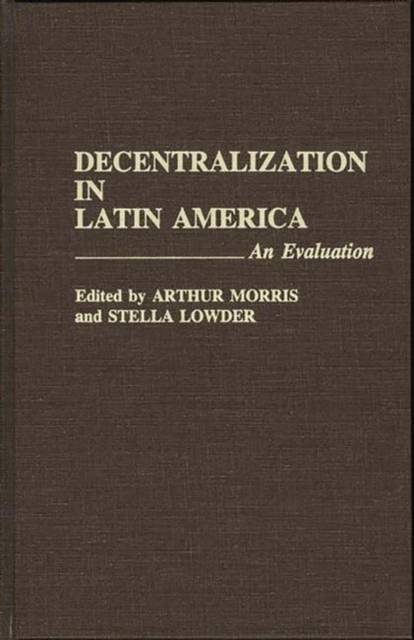
- Retrait gratuit dans votre magasin Club
- 7.000.000 titres dans notre catalogue
- Payer en toute sécurité
- Toujours un magasin près de chez vous
- Retrait gratuit dans votre magasin Club
- 7.000.000 titres dans notre catalogue
- Payer en toute sécurité
- Toujours un magasin près de chez vous
Description
The concept of decentralization embraces several distinct processes, including the deconcentration of governmental and administrative functions, involving both their physical relocation and the devolution of powers, whether political or economic. This book presents a theoretical framework for observations of such phenomena in Latin America, relating them to the modern, or post-modern, tendencies of fragmentation of monolithic structures in many countries and in many fields of human activity. As such it is the first book to systematically examine the process in a particular region and to relate theoretical concepts to Latin American realities.
Part I includes chapters illustrating the process in Argentina, Bolivia, Brazil, Ecuador, and Peru. The focus shifts according to the particular context, some chapters emphasize the contradictions posed by state development and political, and administrative structures, while others examine the impact of neo-liberal economic measures in relation to spontaneous decentralization of people and activities. Part II provides a detailed case study of Mexico, with analyses of both political and economic aspects as practiced by the state and the private sector of the economy. The volume concludes with a consideration of the extent to which these circumstances are common to other parts of the Third World. A significant volume for Latin American Studies collections and those involved with regional planning and economic geography and development.Spécifications
Parties prenantes
- Auteur(s) :
- Editeur:
Contenu
- Nombre de pages :
- 238
- Langue:
- Anglais
- Collection :
Caractéristiques
- EAN:
- 9780275940218
- Date de parution :
- 22-01-92
- Format:
- Livre relié
- Format numérique:
- Genaaid
- Dimensions :
- 160 mm x 242 mm
- Poids :
- 539 g







